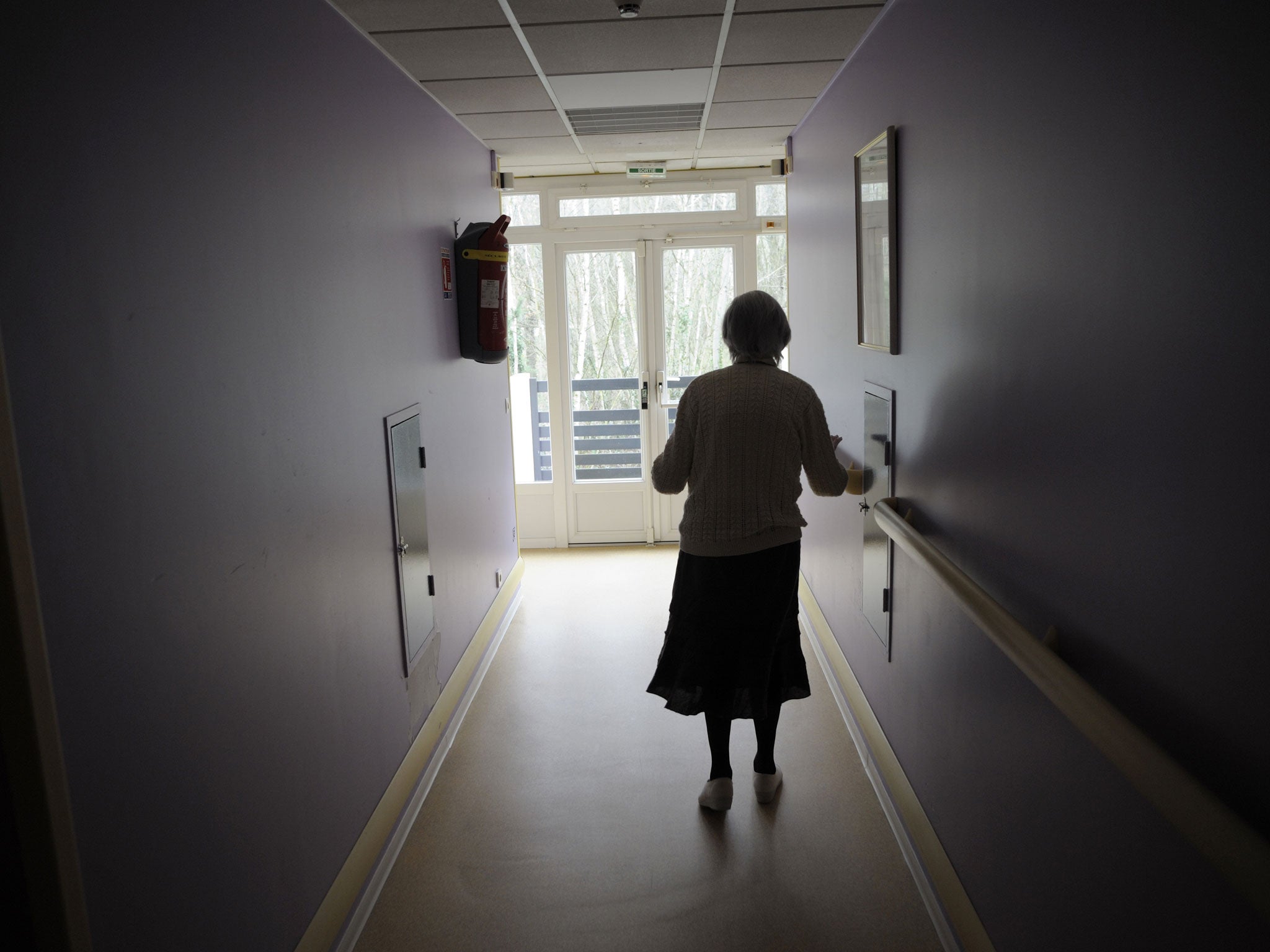I’ve seen firsthand the government’s treatment of the care sector – it has not been pretty
On becoming prime minister 18 months ago, Boris Johnson pledged to ‘fix the crisis in social care once and for all’, writes Andrew Grice, but the turn of the year marks another promise broken


For my family, Christmas and new year will be remembered for the wrong reasons: my sister, brother and I were unable to visit my 95-year-old mother in her care home. Visits were abruptly cancelled on 21 December because the home’s area had entered tier 4. Visits to the home where my 98-year-old mother-in-law lives were halted for the same reason.
Far from the hugging and hand-holding Christmas visits, after rapid tests for relatives, trumpeted by Matt Hancock, my family ended up with no visits. The homes blame the government, which points the finger at individual homes. The Department for Health and Social Care told me: “Visits to care homes can still take place in tier 4 with arrangements such as substantial screens or visiting pods.”
It’s another sign of the dysfunctional relationship between the government and the 15,000 care homes not under its direct control like the NHS, but run by private operators and overseen by local authorities. The worst example came when 25,000 patients were dumped on them by hospitals last March and April without being tested.
To describe care as the poor relation in what should so obviously be an integrated health and care service is an understatement. As someone who previously spent about 15 hours a week visiting the two care homes, I have watched the government’s treatment of the sector as a horrified consumer as well as a political commentator.
It has not been pretty. Hancock prioritised the crown jewel of the NHS, and avoiding the chaotic scenes in Italy’s hospitals in March, over the largely hidden world of care homes. But he has been a health secretary rather than a health and social care secretary, his official title. His response when problems in care homes surfaced in the media was to defuse by headline. An action plan or promise of testing for residents and carers bought some political breathing space but his pledges were often not delivered on time. Hancock was genuinely surprised to learn, during an interview on Radio 4’s Today programme, that visits to care homes were banned for 28 days after someone tested positive. I, and many other relatives, could have told him that.
The turn of the year marks another broken promise on social care. On becoming prime minister 18 months ago, Boris Johnson said he had “a clear plan we have prepared” to “fix the crisis in social care once and for all”. Later he pledged to bring it forward by the end of 2020. In June, Johnson said: “We won’t wait to fix the problem of social care that every government has flunked for the last 30 years.”
Yet we are still waiting for a green paper first promised in 2017. Being swamped by coronavirus is the excuse government insiders give when you ask where the “plan” is. It is not an entirely lame one. If this year has taught us anything, though, it is surely that the NHS needs a properly functioning care system.
Care was creaking before Covid; in some ways, it is a miracle that it didn’t collapse under the strain. That is a tribute to the hard-working, totally committed care staff I have seen at close hand. They don’t get much help or reward from the government; there are an estimated 112,000 vacancies in England for a back-breaking, exhausting, low-paid job many Brits don’t want to do. Despite that, the new year will bring more staffing problems, as care providers struggle to recruit workers from the EU because most would earn less than the £25,600 threshold for a visa.
In October, Johnson hinted at an insurance model, saying the government would bring “the magic of averages to the rescue of millions”. But a major reason for the delay on reform, according to Whitehall insiders, is the Treasury’s anxiety about the cost when Rishi Sunak will be saddled with an ever-increasing bill for the pandemic. The chancellor might decide that maintaining the £20-a-week uplift to universal credit in April is more politically visible than ploughing the £7bn into the less visible care sector proposed by the Health and Social Care Select Committee.
Its chair Jeremy Hunt, Hancock’s predecessor, is right to argue that this is a “now or never” moment for social care, with the public willing to pay towards reform after seeing its vital role in the coronavirus crisis. He suggests a tax surcharge for the over-40s, as introduced in Germany and Japan. An unpopular medicine, but one which can be administered by a government with a huge majority and not facing re-election for four years.
Honouring his pledge to “fix” social care could give Johnson a legacy as a reformer who united the generations and the whole country, in a way the deeply divisive issue of Brexit never could, and never will.




Join our commenting forum
Join thought-provoking conversations, follow other Independent readers and see their replies
Comments